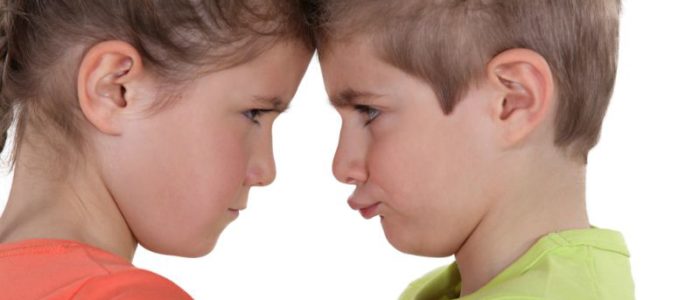Sibling Rivalry or Sibling Abuse?
Sibling rivalry, especially in the younger years, is so common we’ve all accepted it as a way of life. When that second baby is brought home we expect the older sibling to show signs of resentment at no longer being the center of attention. As the children get a little older most parents don’t think twice with bickering and fighting. In fact, many parents simply tune it out. Sibling rivalry is one of the earliest ways that kids learn to navigate difficult relationships. With the proper adult intervention it can teach them how to act appropriately with other people and it the first lesson in social skills they will acquire.
But what happens when the fighting and bickering is more intense, possibly even dangerous to one of the children? Parent’s may not recognize that one child is being abused by the other instead brushing it off as a phase or stage of development. A parent might be distracted by other stressors in life that they don’t notice the degree of abuse taking place. Parents might be afraid to admit that one child is being abusive to the other child and they may not know how to intervene and stop the child from being abusive.
Children who suffer at the hands of an abusive sibling are often helpless in stopping the behavior. When the child, usually younger, but not always, brings the abuse to the attention of the parents for intervention they may be dismissed – ironically because the parents don’t want to show favoritism.
So what is sibling abuse?
Sibling abuse is severe and chronic physical, emotional or sexual abuse of one sibling by another. What distinguishes sibling abuse from sibling rivalry is that the behavior is severe, repeated and a deliberate effort to harm the other, usually younger and smaller, sibling. With rivalry children will fight over an object or a parent’s affection or even alone time. With sibling abuse it is about the resentment of the weaker victim and the desire to do them harm. The immediate effects of sibling abuse are obvious – at least one child is going to get hurt either emotionally of physically. The long term effects of sibling abuse can and usually do carry into adulthood causing all kinds of issues with other relationships.
While sibling rivalry is quite common, sibling abuse is less so. Studies estimate that 25 in 100 children are dangerously violent toward a sibling. However, it is estimated that this number is under reported as many times parents don’t see it as abuse.
How can you tell the difference between sibling rivalry and sibling abuse?
All siblings will bicker and fight at one time or another, especially in the younger years. The difference between rivalry and abuse is that one child is always the victim when it’s abuse. Here are some signs that it might be abuse and not simply rivalry:
- Repeating hitting, biting, pushing, tickling and choking are common signs of abuse in children
- Emotional abuse such as teasing, taunting, name calling and threatening are all examples of abuse
- Unwanted touching or inappropriate touching can be a sign or sexual abuse
The child who is abused by a sibling will often act out in rather specific ways:
- Crying and screaming
- Nightmares
- Attempting to fight back
- Repeatedly telling of parents for assistance
- Avoidance of the abusive sibling
- Abuse of a younger sibling
- And finally acceptance of the behavior or words of the abuser. The child who repeatedly gets tickled until tears are running down their face assumes this is just the way things are and eventually stops fighting.
Parents need to step in before rivalry turns into abuse. All children will fight at one time or another, and it maybe become physical, but it the parent’s job to set boundaries on what is acceptable behavior. Parents must teach children that hitting, name calling, teasing, taunting, pushing, shoving and threatening behavior is unacceptable. Likewise a parent must teach a child that when that kind of behavior is happening to a child that it is not okay and they must tell a parent to help stop the bad behavior.
Many children who suffered from sibling abuse as children suffer from low self esteem as adults. They often have difficulty in developing healthy relationships and might find themselves in similar abusive relationships as adults. So it is imperative that parents step in and stop the abuse before long term damage takes place.


Comments are closed.